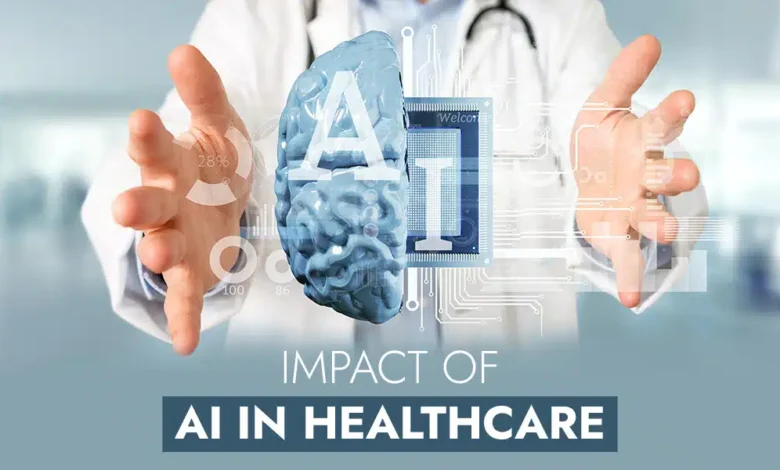
AI healthcare USA: Artificial Intelligence (AI) is revolutionizing various industries, and healthcare is no exception. In the United States, AI is transforming how medical professionals diagnose, treat, and manage patient care. This blog post delves into the significant impact of AI on healthcare, highlighting its benefits, challenges, and prospects. We aim to provide a comprehensive overview that is both informative and valuable to readers interested in the intersection of technology and healthcare.
AI in Diagnostics
One of the most profound impacts of AI in healthcare is in diagnostics. AI-powered tools are enhancing the accuracy and speed of diagnosing diseases. For instance, machine learning algorithms can analyze medical images, such as X-rays and MRIs, to detect anomalies that might be missed by the human eye. This technology is particularly beneficial in identifying early signs of diseases like cancer, leading to timely and effective treatment.
Personalized Medicine
AI is paving the way for personalized medicine, a tailored approach to patient care that considers individual genetic makeup, lifestyle, and environment. By analyzing large datasets, AI can predict how different patients will respond to various treatments, enabling healthcare providers to customize therapies. This not only improves patient outcomes but also reduces the risk of adverse reactions.
AI in Drug Discovery
The drug discovery process is notoriously time-consuming and expensive. However, AI is accelerating this process by predicting how different compounds will interact with targets in the human body. This reduces the time and cost involved in bringing new drugs to market. For example, AI algorithms can analyze vast amounts of data to identify potential drug candidates, streamlining the initial stages of drug development.
Enhancing Patient Care
AI is enhancing patient care by enabling remote monitoring and telemedicine. Wearable devices equipped with AI can continuously monitor a patient’s vital signs, alerting healthcare providers to any abnormalities in real-time. This allows for proactive intervention, improving patient outcomes and reducing hospital readmissions. Telemedicine platforms powered by AI can also provide virtual consultations, making healthcare more accessible, especially in underserved areas.
Operational Efficiency
Hospitals and clinics are leveraging AI to improve operational efficiency. AI can optimize scheduling, manage patient flow, and predict staffing needs, ensuring that healthcare facilities run smoothly. By automating administrative tasks, AI allows healthcare professionals to focus more on patient care, ultimately improving the overall efficiency of healthcare delivery.
Challenges and Ethical Considerations
Despite its benefits, the integration of AI in healthcare comes with challenges and ethical considerations. Data privacy is a significant concern, as AI systems require access to vast amounts of sensitive patient data. Ensuring that this data is securely stored and used ethically is paramount. Additionally, there is the challenge of bias in AI algorithms, which can lead to disparities in healthcare outcomes. It is crucial to develop AI systems that are transparent, fair, and unbiased.
The Future of AI in Healthcare
The future of AI in healthcare looks promising. Continued advancements in AI technology will further enhance its capabilities, leading to more accurate diagnoses, personalized treatments, and efficient healthcare delivery. Collaboration between technology companies, healthcare providers, and regulatory bodies will be essential to navigate the challenges and maximize the benefits of AI in healthcare.
Conclusion
AI is undeniably transforming healthcare in the United States, offering numerous benefits from improved diagnostics to personalized medicine and enhanced patient care. However, addressing the associated challenges and ethical considerations is crucial for its sustainable integration. As AI technology continues to evolve, its impact on healthcare will only grow, promising a future where healthcare is more efficient, accessible, and effective.






